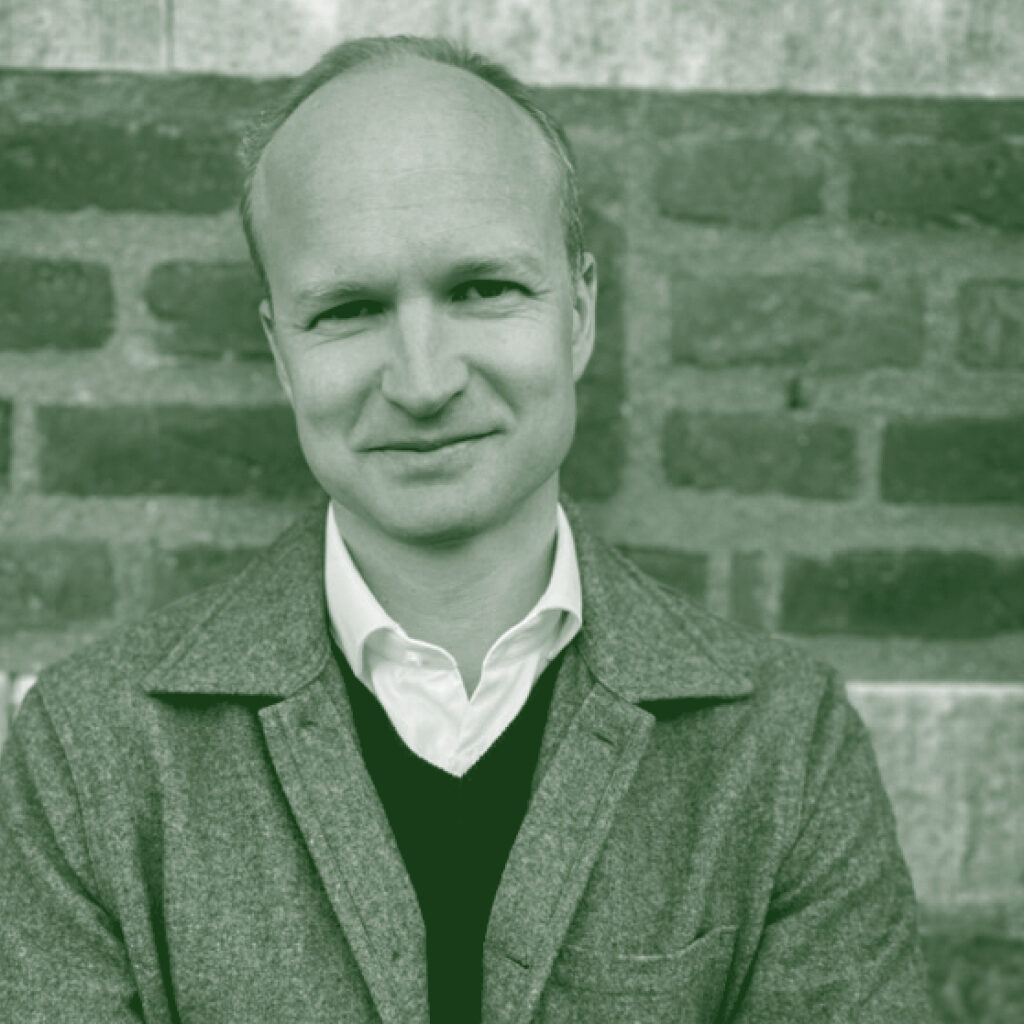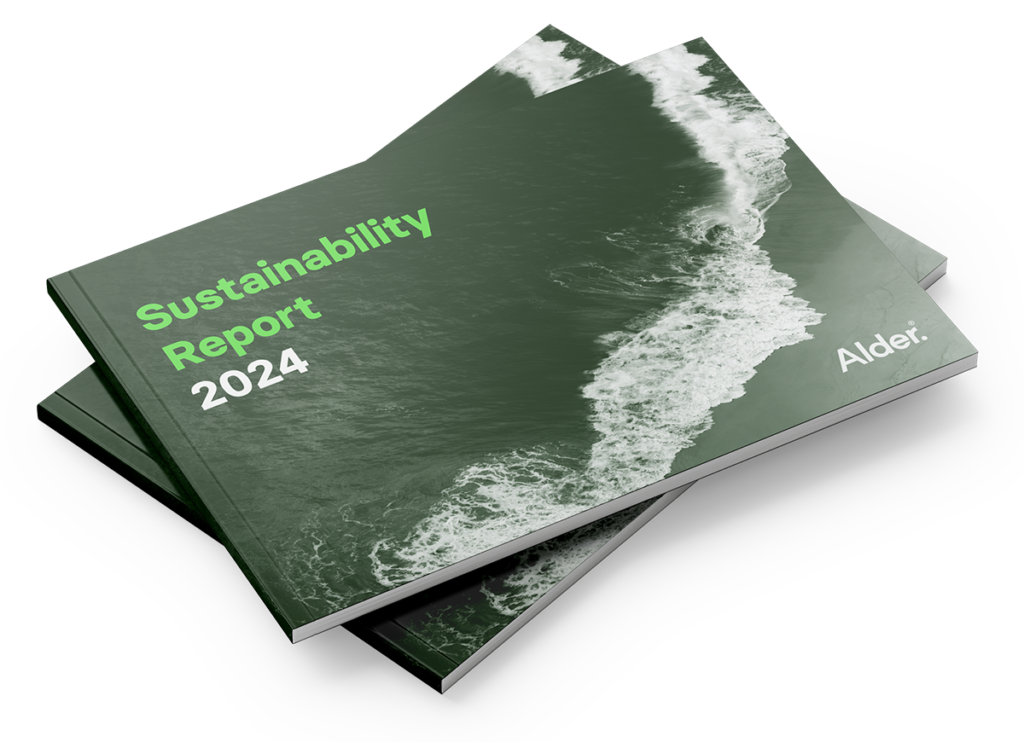2025-04-08
Interview: Gustaf Folke, Biosphere Intelligence

Why accounting for nature’s value makes business sense
Exploring natural capital with Gustaf Folke
With a wealth of experience in strategy consulting and business management, Gustaf Folke established Biosphere Intelligence in 2022 with his brother, Peder Folke. The organisation aims to rethink how science is packaged and radically shorten the time it takes for planetary insights to reach people and businesses. Their training is based on vetted sustainability science and is delivered in an engaging and easy-to-consume way tailored for businesses.
From the minerals in our phones and steel in our buildings to the water required to produce our clothes and soils to grow our food, we rely on nature to fuel our modern world. Otherwise known as natural capital, these resources are essential for the goods and services we rely on and are the basis for our survival, providing clean air, pollination, flood defence, climate regulation – the list goes on. We sat down with Gustaf Folke, co-founder of Biosphere Intelligence, to understand why it’s a must for resilient companies to account for natural capital.
Can you start by telling us more about where the concept of natural capital comes from?
Since the late 18th century, natural capital has been recognised as one of the three pillars of our economy, alongside human and produced capital. But this concept was conceived for a time when societies were simpler and smaller, and resources felt abundant. But as technology advanced, we began using natural resources faster than they could replenish. Over time, and almost without realising it, we have depleted the stocks of nature at a global scale, risking our own welfare largely because we’ve failed to account for or measure how we use nature.So, the concept of natural capital is a way to assign value to the services nature provides us as a way to safeguard prosperity.
How did the shift occur from humans being stewards of nature to consumers of nature?
In one sense, we have always been consumers of nature, but for most of human history, we lived off the land. Hunter-gatherers relied on nature for food, shelter, and clothing, and subsequently, farming culture worked with the rhythms of the seasons so the value of nature was evident in day-to-day life. Then, the Industrial Revolution marked a shift from living in nature to living more separately from it.
Today, in North America and Europe, we spend 90% of our time indoors – by age 40, that’s 36 years inside. Most of us now live in cities, creating the illusion we’re independent from nature. For example, we buy food without knowing where it comes from what it takes to produce it.So, it’s not strange that we now have difficulty valuing nature when we no longer interact with it intellectually, emotionally or practically.
What are some ways we can make the value of nature a priority?
Nature is complex and multifaceted. Unlike carbon dioxide, where it’s relatively easy to understand that we need to measure and reduce it, nature’s many functions are harder to quantify. It’s also deeply local, so governments need support to make smarter trade-offs between what they extract and what they restore. It’s like expenditure versus capital, and right now, the balance sheet doesn’t add up – we’ve overspent.
Valuing nature is tricky because the worth of it is relative, depending on the market and context. We need a new approach to account for nature-based externalities. Over time, this could shift markets and demand, decreasing the value of unsustainable industries while boosting greener ones. Global collaborations like the Natural Capital Coalition and frameworks like the Taskforce on Nature-related Financial Disclosures (TNFD) will help standardise methodologies for valuing nature, much like international accounting standards for financial reporting.
Can you give examples of industries where accounting for natural capital is paramount?
Take the fishing industry: without protecting coral reefs, mangroves and aquatic ecosystems, fish populations decline.Tourism also relies on nature, where the value is in experiencing it – if we don’t preserve natural beauty, people stop visiting. In forestry, there is value in avoiding monocultures and preserving ecosystems to secure long-term harvests, especially in the context of a warmer climate. The challenge, though, is getting people to think long-term, beyond the immediate and their lifetime and generation. There’s also the classic issue of the common good – who will value something when they don’t see an immediate personal benefit and when it’s unclear who is responsible for protecting it?
How can businesses and investors engage in the topic of natural capital?
First of all, so much of the sustainability discourse is outdated, entrenching the debate in environmentalism and activism versus economic development and problem-solving. We need innovative thinking to bridge these divides and move forward.
For businesses and investors, it is important to understand the impact and dependencies on nature in your operations/portfolio. As nature’s values are increasingly taken into account, businesses that don’t assign value to nature will no longer no longer create economic value. There are many initiatives out there to simplify nature accounting for businesses, so the field is moving really fast. At Biosphere Intelligence, we help companies to integrate the value of nature through focused discussions, collaboration, and training.
”Taking into account the role of nature for well-being will no doubt have a profound impact on regulations, norms, attitudes and company valuations in the coming decades.”
What is the future of natural capital accounting?
My hope is that it evolves much like finance has over the past 50 years – becoming extremely advanced and accounting for risks, trade-offs and opportunities. Taking into account the role of nature for well-being will no doubt have a profound impact on regulations, norms, attitudes, and company valuations in the coming decades. In 50 years, companies might report not only quarterly profits but also quarterly ecosystem contributions – a true integration of financial and natural capital accounting. Businesses that integrate natural capital into their core strategies will lead the way because it’s not only ethical but also makes economic sense.
Any final thoughts?
We need more companies that revitalise the planet’s ecosystems to secure our prosperity. It’s a tough challenge, given today’s business preconditions, requiring deep thinking and collaboration – but it’s an incredibly meaningful mission to be part of.
Alders portföljbolag Insort går samman med TriVision
Austria - Kirchberg, 24.4.2025 – TriVision Joins Forces with Insort and Qcify to Advance Food Packaging Inspection, Food Inspection, and Food Sorting Backed by Alder.
Alders portföljbolag Insort går samman med Qcify
Austria - Kirchberg, 25.3.2025 – Insort and Qcify are joining forces as strategic partners in food sorting and inspection, reinforcing their shared vision of driving technological innovation and automation in food processing through advanced vision solutions.
Alder investerar i 3Button Group, en ledande leverantör av avancerade lösning inom industriell automation
Stockholm – March 14, 2025 – Alder, a Nordic investment fund focusing on the development of sustainable companies, has closed an investment in 3Button Group AB (“3Button Group” or the “Company”). Alder will become the majority owner of 3Button Group and has partnered with management and owners to continue the company’s growth journey.


